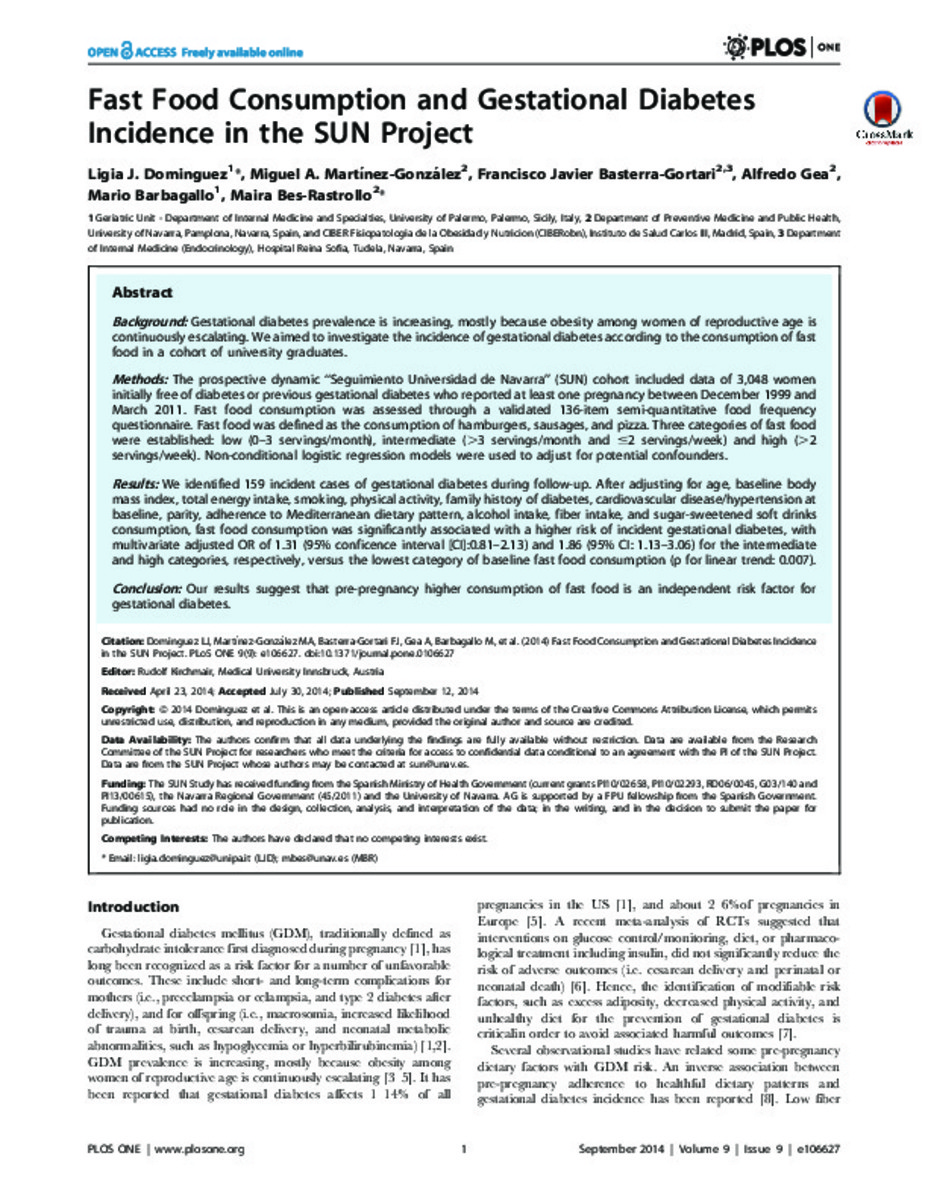Fast food consumption and gestational diabetes incidence in the SUN project
Palabras clave :
Gestational diabetes
Fast food
SUN Project
Fecha de publicación :
2014
Editorial :
Public Library of Science
Cita:
Dominguez LJ, Martínez-González MA, Basterra-Gortari FJ, Gea A, Barbagallo M, Bes-Rastrollo M. Fast food consumption and gestational diabetes incidence in the sun project. PLoS One. 2014 Sep 12;9(9):e106627
Aparece en las colecciones:
Estadísticas e impacto
0 citas en

0 citas en

Los ítems de Dadun están protegidos por copyright, con todos los derechos reservados, a menos que se indique lo contrario.








